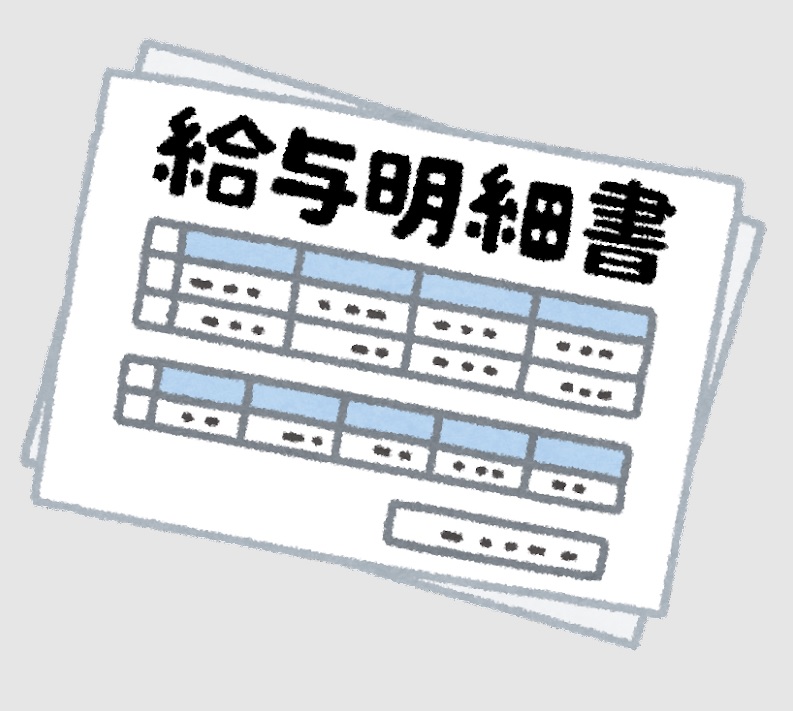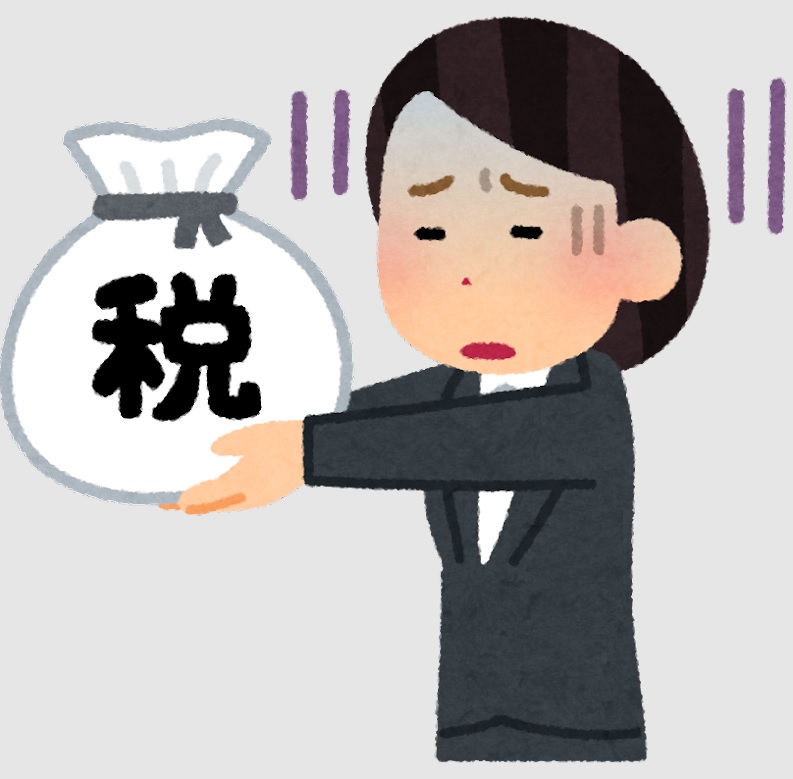「給料の秘密: 税金と控除の舞台裏」
今日は【貯める力】
会社員と個人事業主が手取りを増やすには?
ついてお話しします。
●知っておきたい、身近な税金のこと

世の中の税金はいっぱいあります。
↑ここにめちゃくちゃいっぱい載ってます。
本当に沢山の税金があります。
大きく分けると
(1)国税
(2)地方税
があります。
(1)国税:国に納める税
・所得税
・消費税
・法人税
・酒たばこ
(2)地方税=都道府県に納める税金
・住民税
・自動車税
・固定資産税
これは覚えなくてもいいです。
特に私たちに密接に関係あるのが
・所得税
・住民税
・消費税
です。
(社会保険も税金ですが
ややこしくなるので
別の機会にお話しします)
●手取りと額面の違いを理解して、賢く納税しよう

税金のおさらいをします。
会社員にかかる税金というのは
・所得税 5〜45%
・住民税 10%

(サラリーマンの納税 出典:リベラルアーツ大学)
納付方法ですが
・所得税:先払い
・住民税:後払い
これがちょっとややこしくて
わかりにくいんですよね。
例)会社員の額面と手取りの違い
給料 額面25万円 手取20万円
みたいな。
この差額って一体何なのか?
毎月の所得税と住民税というのを
天引きされてるんですよね。
25万円もらってるのに
手元に来るのは20万円。
この引かれてる正体は
・所得税
・住民税
です。
これらが天引きされています。
もう一つ社会保険も天引きされています。
天引きの事を『源泉徴収』と言います。
本当は厳密に言うと
所得税の天引き:『源泉徴収』
住民税の天引き:『特別徴収』
と言います。
天引きという意味では一緒なので
まとめて『源泉徴収』と言うのが
一般的です。
・所得税は先払い
・住民税は後払い
です。

(サラリーマンの納税 出典:リベラルアーツ大学)
(1)所得税
給料の額面からザックリ計算で
毎月給料から天引きされるんですよ。
毎月ザックリ天引きしてます。
もちろん計算式はあるんですけど
ザックリ天引きされてる。
それで年末調整で
過払い分が返金されるんですよね。
要はザックリだから
大体多めに引かれてる事が多いので
年末調整します。
年末に
「これだけ沢山収めすぎがありますよ
これだけ後から認められる経費
=控除(こうじょ)がありますよ」
というのを申告すると
年末調整で過払い分が
返金される。
所得税に関しては。
だから年末調整して帰ってくる分を
「やった!給料増えた!」
みたいな感じになりますが
取られ過ぎてる
=自分が払い過ぎてる分が
帰ってきてるだけです。
返してくれただけで
増えた訳ではないです。
〜〜〜つづく〜〜〜
Special Thanks college president Ryo.
●おまけ
≪≪Chat-GPTくんによる要約→perplexityちゃんによる文章まとめ≫≫
会社員と個人事業主が手取りを増やすためには、税金の理解が不可欠です。税金は大きく分けて国税と地方税に分類され、特に私たちに関係の深いのは所得税、住民税、消費税です。会社員の場合、所得税は5〜45%の累進課税で、住民税は一律10%です。所得税は給与から先払いで天引きされ、住民税は前年の所得に基づいて後払いとなります。
給与からの天引きは「源泉徴収」と呼ばれ、所得税と住民税が含まれます。年末調整では過払い分が返金される仕組みですが、これは実際には給料が増えたわけではなく、払いすぎた税金の還付です。したがって、年末調整を利用して賢く納税し、自分の手取りを最大限に活用することが重要です。
Citations:
[1] https://www.am-one.co.jp/warashibe/article/kakaru-20201030-1.html
[2] https://www.cr.mufg.jp/mycard/business/24061/index.html
[3] https://www.freee.co.jp/kb/kb-blue-return/tax-kinds/
[4] https://keiridriven.mjs.co.jp/170082/
[5] https://biz.moneyforward.com/establish/basic/51924/
[6] https://www.freee.co.jp/kb/kb-blue-return/kinds-of-tax/
[7] https://www.mof.go.jp/faq/tax_policy/02aa.htm
[8] https://www.nta.go.jp/taxes/kids/hatten/page02.htm
≪≪Chat-GPTくんによる英訳≫≫
Today’s Topic: The Power of Saving
We will discuss how employees and self-employed individuals can increase their take-home pay.
【Understanding Everyday Taxes】
There are many types of taxes in the world. You can find a comprehensive list at Ichiran-ya. Taxes can be broadly divided into two categories:
1.National Taxes (paid to the national government)
・Income Tax
・Consumption Tax
・Corporate Tax
・Alcohol and Tobacco Tax
2.Local Taxes (paid to prefectural governments)
・Resident Tax
・Vehicle Tax
・Property Tax
You don’t need to memorize all of these. The taxes most relevant to us are:
・Income Tax
・Resident Tax
・Consumption Tax
(Social insurance is also a tax, but we’ll discuss that on another occasion as it can be complicated.)
【Understanding the Difference Between Gross and Net Income to Tax Smartly】
Let’s review the taxes applicable to employees:
・Income Tax: 5% to 45%
・Resident Tax: 10%
(Payroll taxes for employees, source: Liberal Arts University)
Payment Methods:
・Income Tax: Paid in advance
・Resident Tax: Paid in arrears
This can be a bit confusing. For example, if an employee has a gross salary of 250,000 yen and a net salary of 200,000 yen, what accounts for the difference?
The difference comes from the income and resident taxes that are withheld from the salary. Although the gross pay is 250,000 yen, only 200,000 yen is received due to these deductions.
Additionally, social insurance premiums are also withheld. This withholding is referred to as “withholding tax.”
Strictly speaking:
・Withholding of Income Tax is called “Gensen Choshu.”
・Withholding of Resident Tax is called “Tokubetsu Choshu.”
However, both are generally referred to as “withholding tax.”
・Income Tax: Paid in advance
・Resident Tax: Paid in arrears
(Payroll taxes for employees, source: Liberal Arts University)
Income Tax is roughly calculated and withheld from the gross salary each month. Although there are formulas for calculation, it is generally approximated. At year-end, adjustments are made, and any overpaid amounts are refunded.
Since the withholding is often slightly more than what is actually owed, a year-end adjustment is performed.
At the end of the year, you can declare:
“I’ve overpaid this much, and I have these recognized expenses (deductions) available.”
This allows for the refund of any overpaid income tax.
Thus, when you receive a refund at year-end, it may feel like, “Yay! My salary has increased!” However, it’s important to note that this is simply a return of the amount you overpaid, not an actual increase in income.
Special Thanks OpenAI and Perplexity AI, Inc


